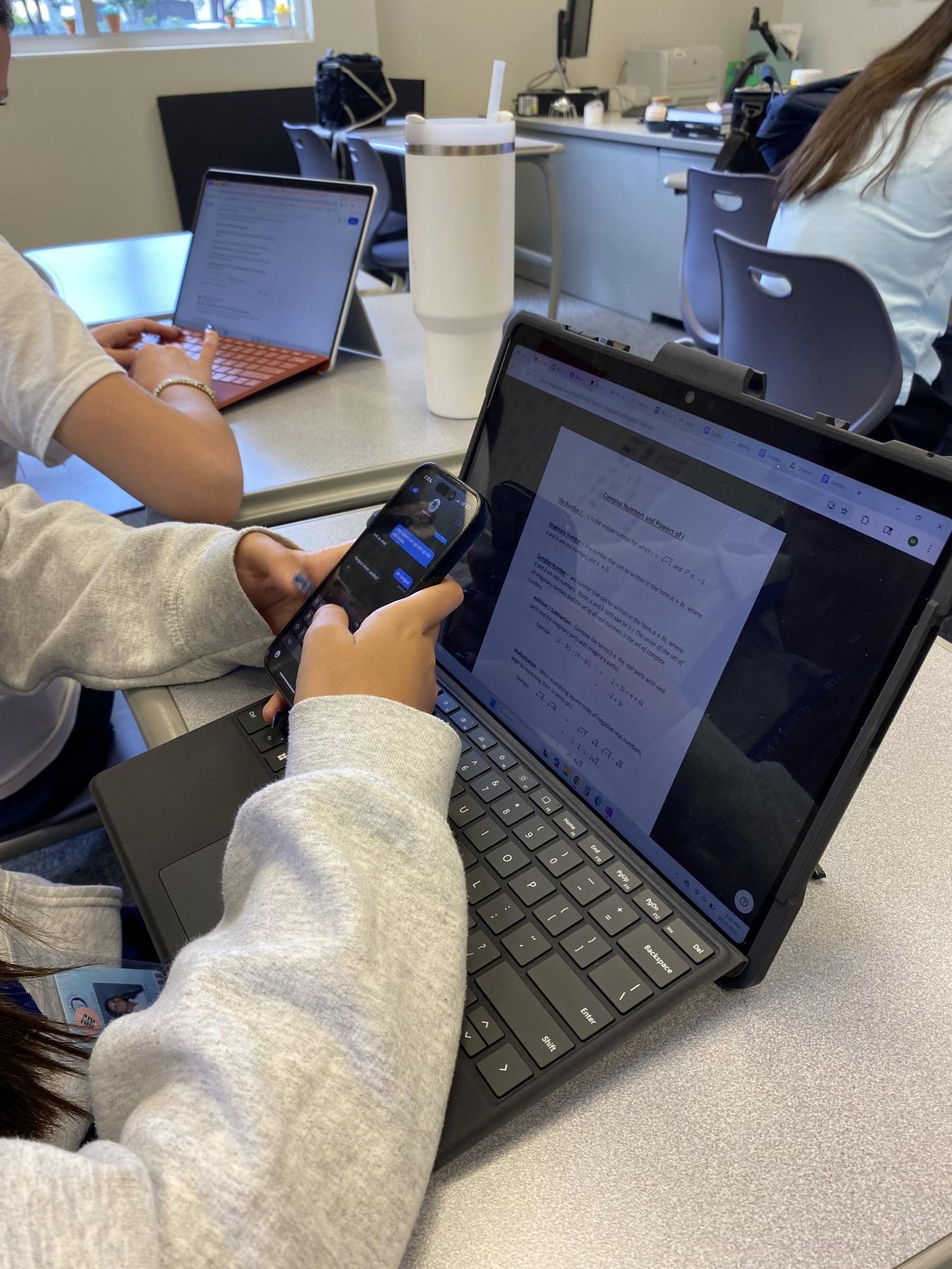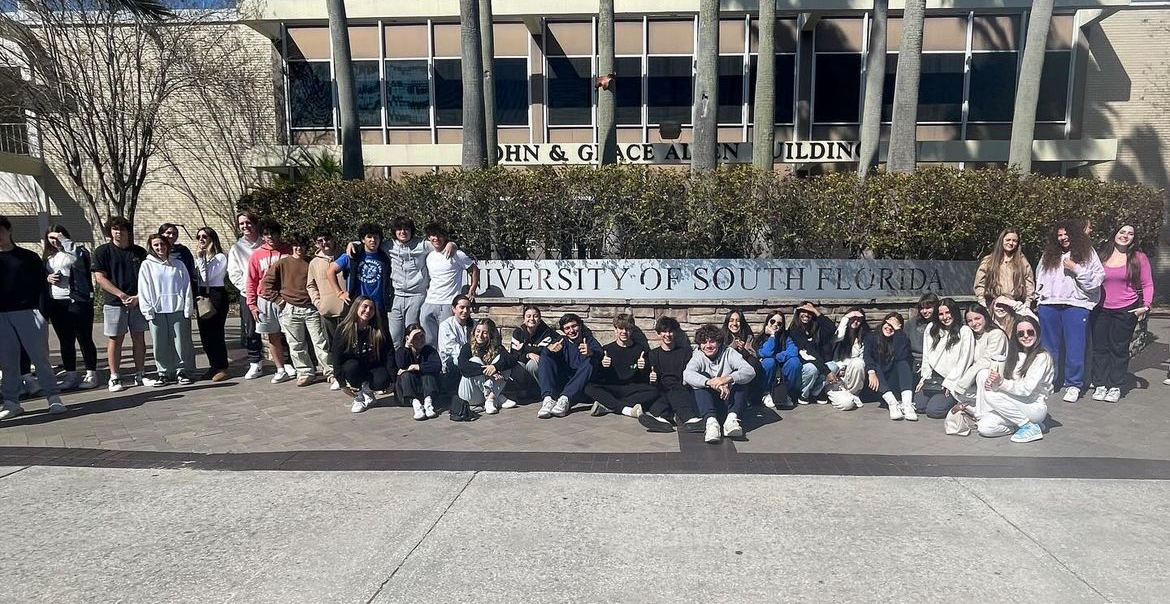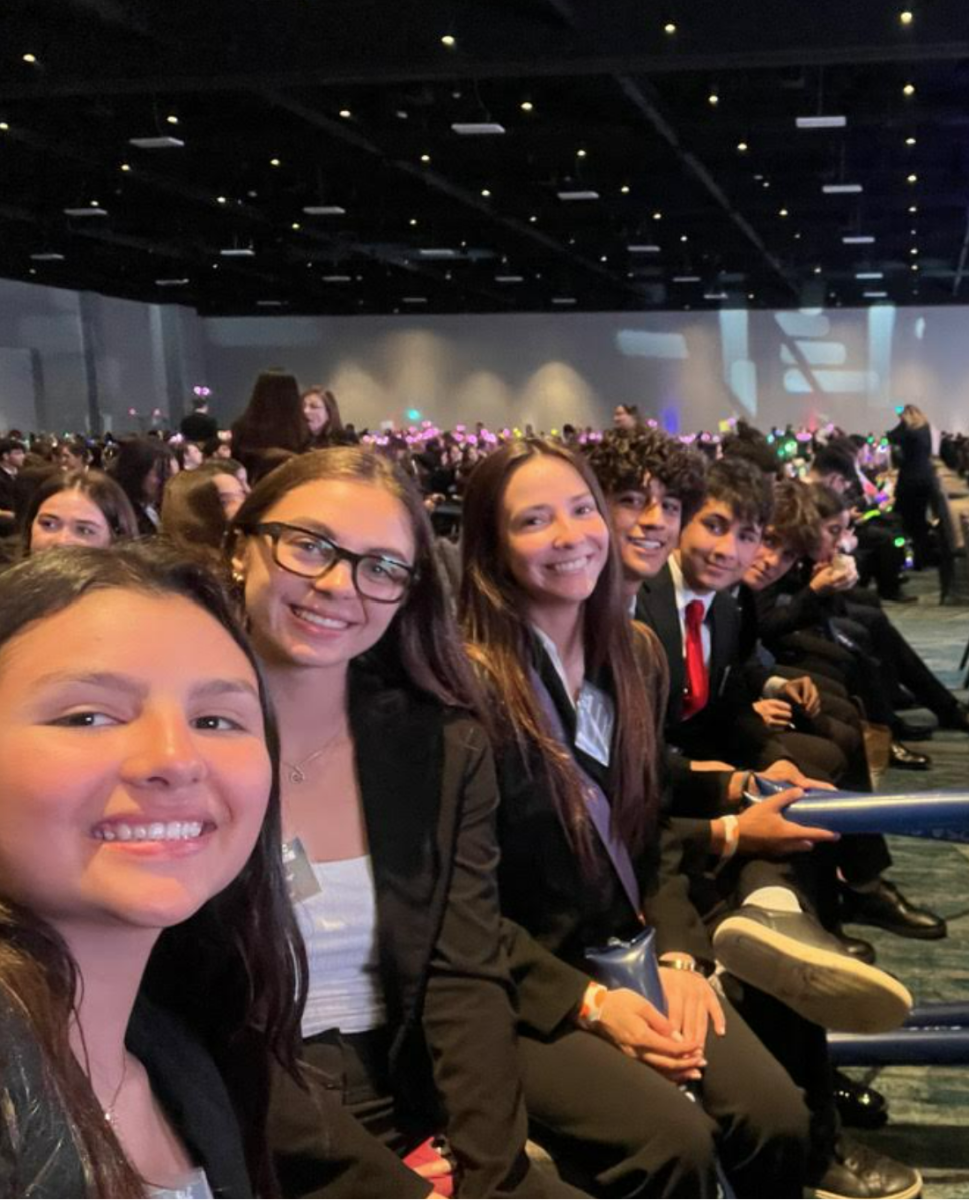Students and teachers are clashing over the use of cell phones in the classroom. While students see their phones as valuable learning tools, many administrators believe they are a significant distraction that pulls focus away from lessons. This ongoing debate has started a new conversation about how phones should be used at our school.
Students have expressed frustration about our school phone policy. According to the student handbook, “Other than school-issued tablets, all electronic devices must be turned off (not muted or silenced) and remain out of sight during the school day (8 a.m. to 3 p.m.).” But by banning phones even during breaks or lunch, students often feel the need to sneak a look during class. A better solution would allow phones during non-instructional times while keeping them out of the classroom.
For students like senior Victor Oliveras, the current ban only increases the temptation to use a phone during class. “If I could use my phone in lunch, I would definitely use it way less in class,” Oliveras said.
Research supports this idea; Deborah Pirchner, editor of the Frontier, stated that short technology breaks were effective in reducing the time students spent on their phones during class. This study’s results could benefit our students by leading to a reduction in phone usage in class, thereby making them more productive.
Another benefit is that short phone breaks would also give students a chance to recharge and refocus, potentially helping them deal with stress from their busy school day.
Not everyone agrees that loosening the rules would help. Our new Dean of Student Affairs, George Gulla, believes that phone interruptions are inevitable, and they should not be used in school under any circumstances.
“As long as it’s within hand’s reach and you’re giving them the opportunity to do something with it that they’re not supposed to do, it’s just a distraction. Even if it’s something as simple as texting their parents,” Gulla said.
Although students can become distracted, phones are not going away and allowing students to use them during downtime will only help them prepare for a future where they have to self-regulate. Instead of pushing phones out of sight a balanced approach to the cell phone policy will give students a much needed break without the fear of repercussions and help them return to class recharged and ready to learn.
















